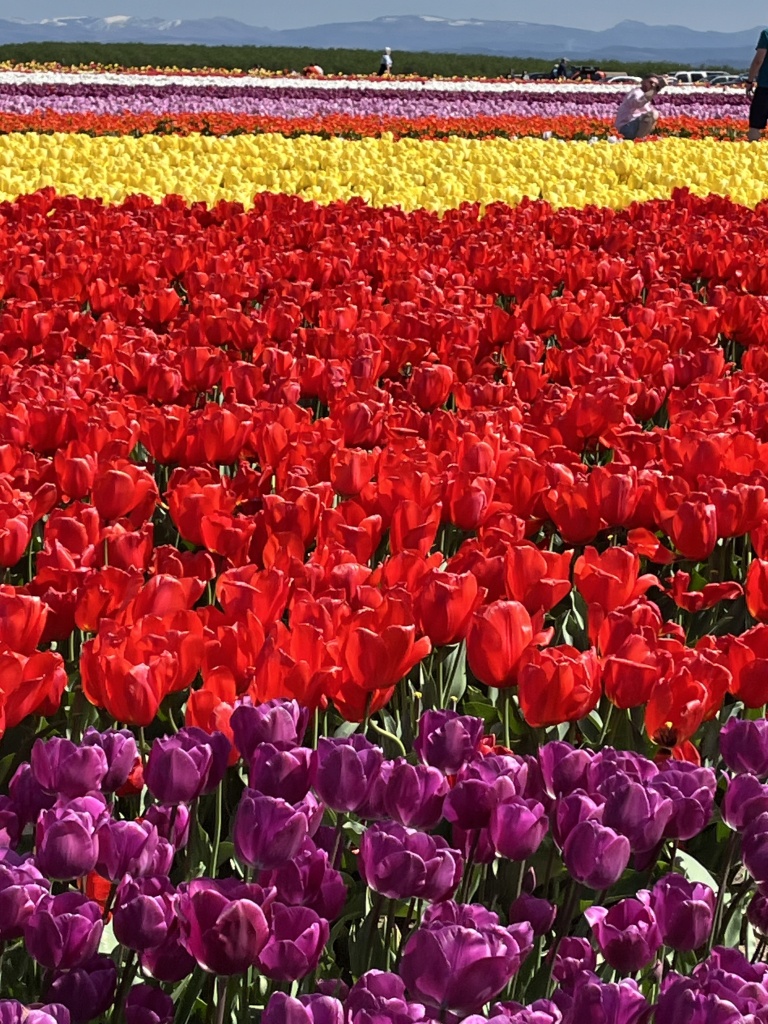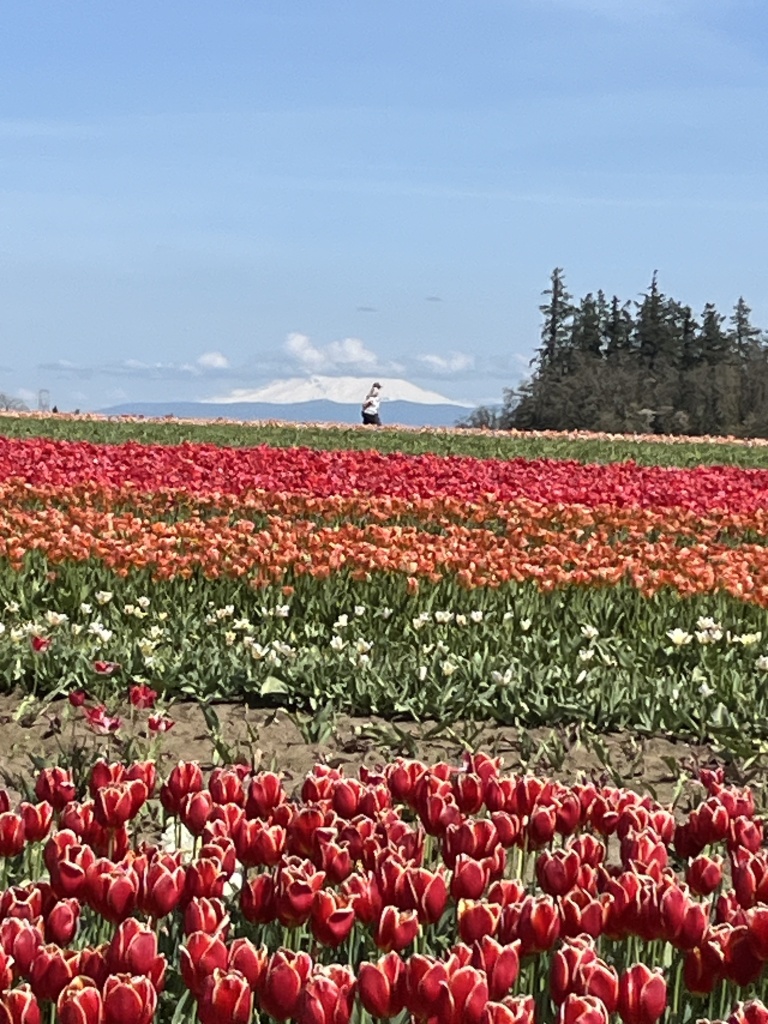I begin as often with a note about nature. In Oregon spring clearly is with us. Tulips have been beautiful but are about finished; azaleas are blooming radiantly, rhododendron are opening their glorious blossoms. Tree pollen has been like yellow snow for weeks but now seems to be giving way to the flurry of petals from cherry and apple trees. A few very warm very sunny days have been tantalizing but the reality is that spring has come too soon and we are very grateful now that the rains have returned. The rhythm of life here in the Pacific Northwest is that the temperate summers are dependent on the rainy winters. It is an ecosystem. It is the visual evidence of the action of the creative power of God, which is love, expressed in the totality of the environment. Nature breathes and so do we, nature smiles and so do we, nature relaxes and so do we. And as the ecosystem in synchrony builds and communicates love, wonder and joy increase as well.
So, it is critical to comprehend human enterprise not as singular but, rather, as part of this ecosystem of love from God. We are created in God’s own image as loving people, and the stewardship of nature we have been given consists primarily of maintaining our synchrony of love with creation. Stop and smell the flowers, but remember to prune judiciously so they will continue to thrive. And in this way responsibility evolves as loving action.
Indeed, the cosmos is everlasting, the cosmos brings light and movement and gravity and pull and push and ebb and flow, all possible because it is love filling what would otherwise be a void. Without love there is only the void. With love there is only life.
Thus, there is an ecosystem of love in which the entry into the dimension of love is the pathway to eternal life in joy. The ecosystem of love is available to every child of God who loves, who loves God, who loves the other children of God. Therefore, there can be no outcasts. Anyone who loves, has found the door into the dimension of love.
Love can take many forms, we have to be clear about this. When we talk about God and love we are not talking about warm fuzzy feelings; we are, instead, talking about justice, righteousness, equality, egalitarianism, peace, and the accompanying concepts of restraint, refrain, responsibility.
In the Acts of the Apostles [8:26-40] Philip is directed by God, fueled by the power of love. An angel sends him to the right spot, the Spirit directs him to where he encounters the official identified as a eunuch. After their interaction—their synchrony of love in action–the Spirit snatches Philip away and deposits him where he is next needed to preach the Gospel of love. God’s Spirit of love moves Philip across dimensions to build up the love needed to spread the good news of salvation.
The court official identified as a eunuch is an outcast from the religious community; because of his sexual difference he cannot be a part of the congregation. But his love of God overcomes his difference, his love of God compels his desire to know Jesus. This is his opening to the dimension of love. God, love, always rushes into the opening to fill the void.
Philip proclaims the Gospel of love, baptizes him and receives him into the household of God, and he goes on his way rejoicing, no longer outcast, now a full member of the community. Such is the power of love to bring everyone into the fold as a child of God through believing in Christ Jesus.
If we love one another, God lives in us, and his love is perfected in us [1 John 4:12].
God is love, and those who abide in love abide in God, and God abides in them [1 John 4:16].
John’s first epistle [1 John 4:7-21] continues the expression of the power of love. Love is the very force of life, life is God because love is God, God is love and therefore God is life. When we love each other God is alive within and among us thriving and building up more love.
In John’s Gospel [15:1-8] Jesus uses the metaphor of a vineyard to make his point about the ecosystem of love. God is the vinegrower, Jesus is the vine, the branches must be pruned to bear the best fruit, those branches that are pruned grow and bear much fruit.
God is love, Jesus is the Word of love, the vine is the dimension of love, the branches that bear even a little love bear much love, we are those branches, our job is to bear the fruit of love.
When we live in God’s loving ecosystem we thrive, love thrives, love builds up, whatever creates more love (joy) is part of the working of the ecosystem.
Of course, we who are LGBTQ+ people might identify with the outcast in Philip’s story, but also as the lovingly tended vine that bears much fruit in Jesus’ metaphor.
Remember, the purpose of scripture is not to serve like a cookbook or a legal repository, but rather, to reveal to us God’s purpose.
Here is a person who was outcast because of his sexual classification who, despite that, seeks understanding, finds God, and the Holy Spirit sends him an apostle and leads him to the waters of baptism. From there it is revealed that, like us, he has eternal life in Christ.
And Philip, the apostle, I love this story (not least because for several years I was rector of one of his churches), is shunted like the Jetsons from spot to spot from need to need by God’s Spirit of love. And the whole time Philip stands at the door to the dimension of love.
5 Easter Year B 2024 RCL (Acts 8:26-40; Psalm 22:24-30 Deus, Deus meus; 1 John 4:7-21; John 15:1-8)
©2024 The Rev. Dr. Richard P. Smiraglia. All rights reserved.


